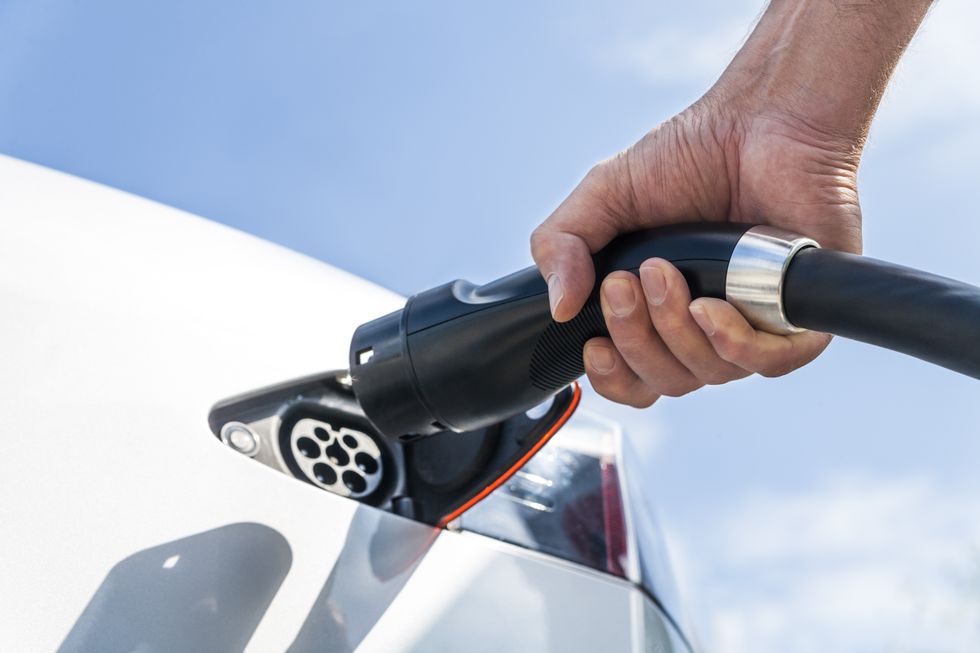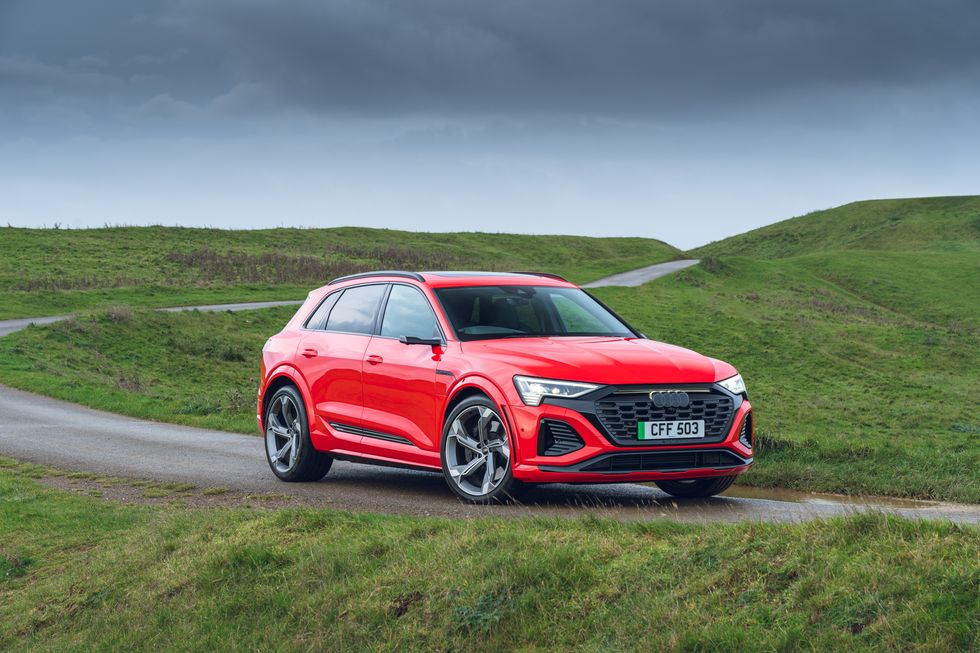'The advantage of EVs is becoming visible to consumers step by step'
Don't Miss
Most Read
Trending on GB News
One of the world’s largest vehicle manufacturers is temporarily stalling its ambitious plans for new electric vehicles over ongoing factory concerns.
Audi has been seen to fall behind other marketplace rivals like Mercedes and BMW, who are preparing to launch their next generation of EVs in a matter of years.
The German brand plans to bring out 20 models by 2026, with half of them being fully electric, with Audi already manufacturing many popular EV models with its e-tron series.
Audi has struggled recently with the Q6 e-tron being pushed back repeatedly, with the manufacturer planning to release another electric model next year, in addition to two combustion engine cars.

The brand is continuing to produce ICE vehicles alongside electric cars
GETTY
Drivers are still hesitant to switch to electric, especially with Audi’s higher-end range of EVs which start from £51,000, while other models retail from £100,000 like the SQ8 Sportback e-tron.
Gernot Döllner, CEO of Audi AG, spoke about the future of electric cars and the plans for the future during an interview at the brand’s Ingolstadt headquarters in Germany.
He said: “We first looked at what order and density of launches the organization could handle.
“In the end, we decided to spread it out to not overwhelm the team and the dealerships. The advantage of EVs is becoming visible to consumers step by step.
“With this triad - our new EVs, a new generation plug-in hybrids and internal combustion engine models - we’re robustly and flexibly positioned for the transition phase,” Bloomberg reported.
There are fears that Audi could be left behind in the EV transition by continuing to produce new petrol and diesel vehicles, with brands like Tesla and China’s BYD already making major strides with electric cars.
A growing number of Chinese brands are launching new electric cars in Europe for low prices, potentially taking away a significant slice of the EV market share.
Audi remains incredibly popular in the UK with the Audi A3 ranking as the 10th best-selling vehicle so far this year with more than 28,000 registrations, just behind other British staples like the Vauxhall Mokka and Mini.
Rishi Sunak said this was being done to ensure that drivers could benefit from cheaper upfront costs, an improved public charging network and greater autonomy in making the switch.
It announced that it would reduce its forecast of electric vehicles’ share of new car sales in 2027 to just 38 per cent, a massive drop compared to the 67 per cent previously projected in March.
The OBR stated that drivers were being put off by the expensive ticket price of a new electric car, as well as the general cost of living crisis.
In 2022/23, electric vehicles made up 16.5 per cent of new car sales in the UK, although this was just over one percentage point below the previous OBR forecast.
LATEST DEVELOPMENTS:

The Audi SQ8 e-tron EV starts from more than £100,000
AUDI
The majority of new electric cars start from £30,000 with the OBR saying this would “likely still be disincentivising many consumers”.
Despite this, many manufacturers are looking to bring prices down to around £20,000 and lower in the coming years.









